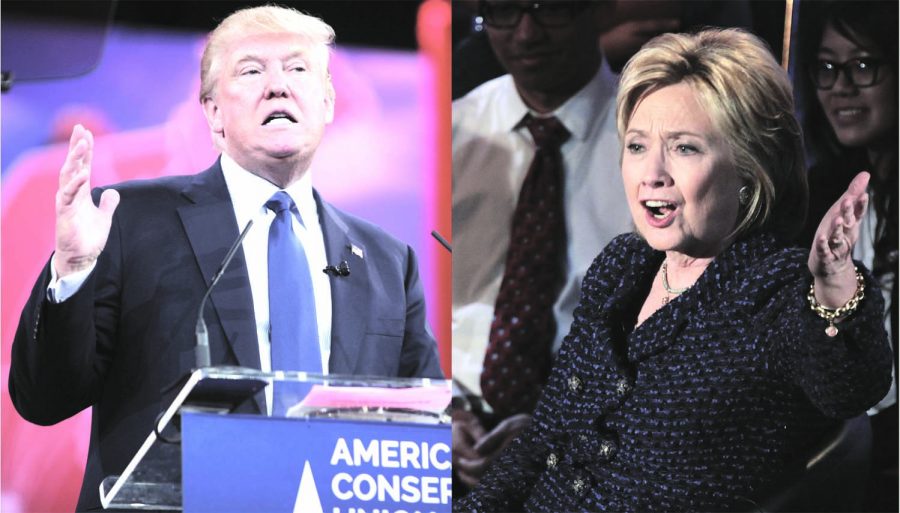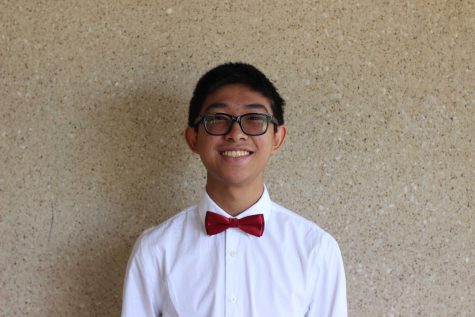Election creates perilous situation
President-elect Donald Trump and Secretary Hillary Clinton campaign during the presidential election. (Photos by Gage Skidmore)
December 9, 2016
The 2016 presidential election set a dangerous precedent for future elections, with lamentable campaigns run by both former Secretary of State Hillary Clinton and President-Elect Donald Trump endangering the media’s ability to report major news.
Threats against the press throughout this election cycle occurred often, and were the most grievous transgressions of election precedent. Trump’s campaign banned reporters of more than a dozen publications from attending his events, including those of the Washington Post and Politico.
He cited what he deemed “very dishonest” coverage from the organizations, and suggested doing the same to The New York Times, the nation’s largest major news outlet, to improve its coverage of him. These actions represent a chilling move to silence coverage and criticism, vital parts of the American democratic process.
The public’s right to know and understand its future president’s policies is a cornerstone of American politics, championed for over two centuries now. Attempts to reduce access to this knowledge represent a dangerous shift, one in which citizens’ well-being is potentially placed at risk.
Clinton, on the other hand, refused to answer questions through press conferences, not holding her first until September 2016. Her lack of availability to news outlets, who serve as key intermediaries between the people and politicians, served to further her reputation as arrogant and reckless.
Her actions were not only harmful to her campaign, but to the American people. Press conferences serve as opportunities for reporters to criticize candidates face-to-face, and Clinton’s 278 day drought of them showed an irresponsible lack of accountability to the public.
In addition, her warnings to the media, though not as severe as Trump’s, indicated her willingness to strongly combat harsh coverage of her campaign. While Clinton herself humorously addressed reports concerning her health, deflecting worries, her campaign provided a sharp contrast, pushing against organizations that reported her possibly poor health.
Though candidates have the right to deny rumors, it is the method by which she did so that provides cause for concern. Her subtle bullying and manipulation of mainstream news’ coverage showed behavior unsuited for the White House.
No free press will exist in the United States if its president is allowed to choose who will cover him/her and what information will be disseminated. At that point, America will have devolved into authoritarian habits and may as well be running a state media.
An informed electorate is key to the functioning of the American political process, and this information necessitates a president that believes he or she should be held accountable to the media. Both president-elect Trump and Secretary Clinton exhibited oafish and heavy-handed attitudes towards this cornerstone of the American democratic process during the election.
Danger, even from the next leader of the free world, must be combated by the American people. In the next election, citizens must voice their disdain for candidates like Trump and Clinton in the primaries before deeming the election a choice between the lesser of two evils.
Citizens must also fight for the rights of the press, who serve as a key linkage institution between politicians and the people. The role of the press is not only to convey information but to criticize the government and allow it to improve. Without the backing of the people, the future of the American press is dark and uncertain, with this past election having done serious damage and set a dangerous precedent.



